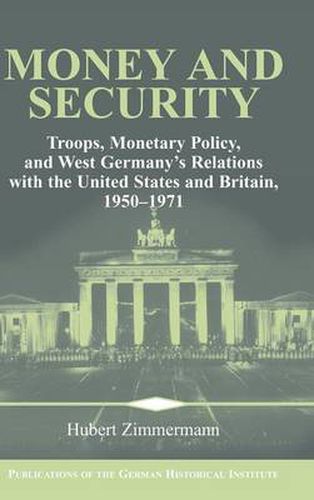Readings Newsletter
Become a Readings Member to make your shopping experience even easier.
Sign in or sign up for free!
You’re not far away from qualifying for FREE standard shipping within Australia
You’ve qualified for FREE standard shipping within Australia
The cart is loading…






This study links two fundamental political structures of the Cold War era, the transatlantic security system and the international monetary system. Central to this issue is a problem which soured relations between the Federal Republic and its major allies from the 1950s to the 1970s: who was to bear the enormous cost of British and American troops in Germany? Both Washington and London identified this cost as a major reason for the decline of the pound and the dollar, whereas Germany reluctantly paid and traded ‘Money for Security’, a fundamental pattern of its postwar foreign policy. The interweaving of money and security leads toward a new and more complete understanding of transatlantic history during the Cold War, one which provides an incisive comment on the pattern of simultaneous conflict and cooperation in the interaction of modern states, demonstrates the crucial importance of domestic politics for the formulation of foreign policies, and comments on the relative nature of American hegemony.
$9.00 standard shipping within Australia
FREE standard shipping within Australia for orders over $100.00
Express & International shipping calculated at checkout
This study links two fundamental political structures of the Cold War era, the transatlantic security system and the international monetary system. Central to this issue is a problem which soured relations between the Federal Republic and its major allies from the 1950s to the 1970s: who was to bear the enormous cost of British and American troops in Germany? Both Washington and London identified this cost as a major reason for the decline of the pound and the dollar, whereas Germany reluctantly paid and traded ‘Money for Security’, a fundamental pattern of its postwar foreign policy. The interweaving of money and security leads toward a new and more complete understanding of transatlantic history during the Cold War, one which provides an incisive comment on the pattern of simultaneous conflict and cooperation in the interaction of modern states, demonstrates the crucial importance of domestic politics for the formulation of foreign policies, and comments on the relative nature of American hegemony.